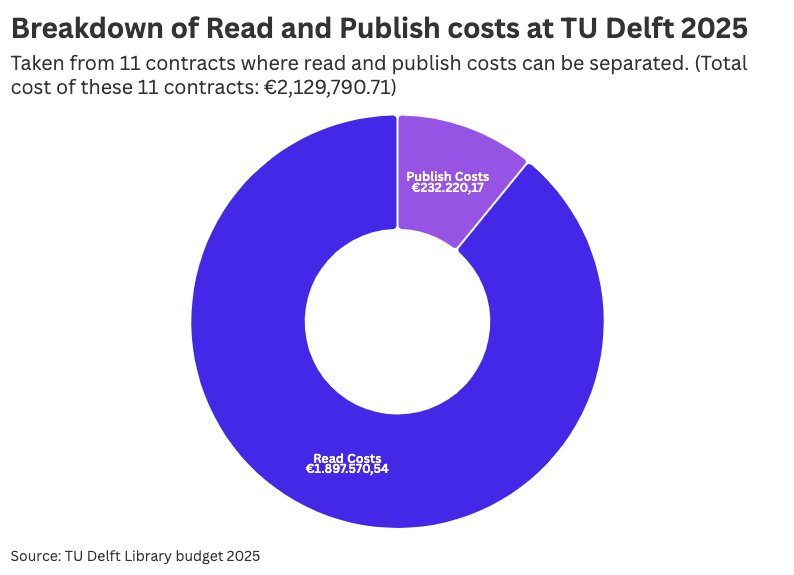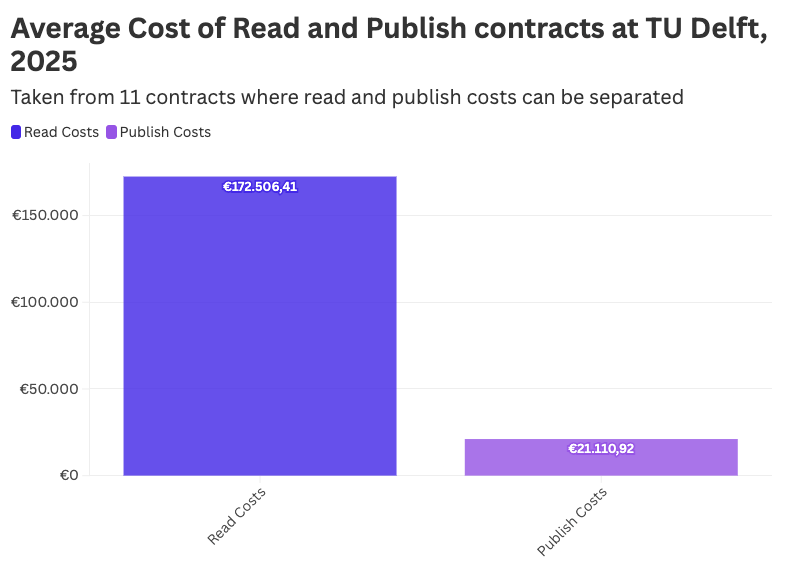Below is collections and publishing budget for TU Delft in 2026 (subject to final approval as part of the overall library budget).
The total budget for collections and publishing is €7,615,000, the same as 2025
Read and Publish deals, sometimes known as Transformative Agreement, are where costs are paid for the right to publish in a publisher’s journals and for access to read those journals.
Sometimes, the amount for publishing and the amount for access (‘read’) is known. This is why there are different classifications for Read & Publish, Read and Gold OA Publishing.
Databases are available here. There is also information on the Open Scholarly Communications Fund. Books can be searched via the library catalogue
Some of these deals are one to one deals between TU Delft and the publisher; for others TU Delft is part of the national consortium managed by SURF. Occasionally, TU Delft also works with other intermediary partners and smaller consortia to sign contracts.
| Read & Publish | €2,680,000 | All combined Read & Publish deals that do not have a separate APC and Read cost indication |
| Read | €2,120,000 | Also Read costs including Read & Publish where the amount for Read is known. Also includes some databases |
| Gold OA Publishing | €1,320,000 | All Gold APC costs including Read costs of Read & Publish deals where the amount for Read is known |
| Databases | €831,000 | |
| Books | €190,000 | |
| Educational resources | €324,000 | |
| Open Scholarly Communication fund | €150,000 | Support positive initiatives for publishing, infrastructure and innovation |



